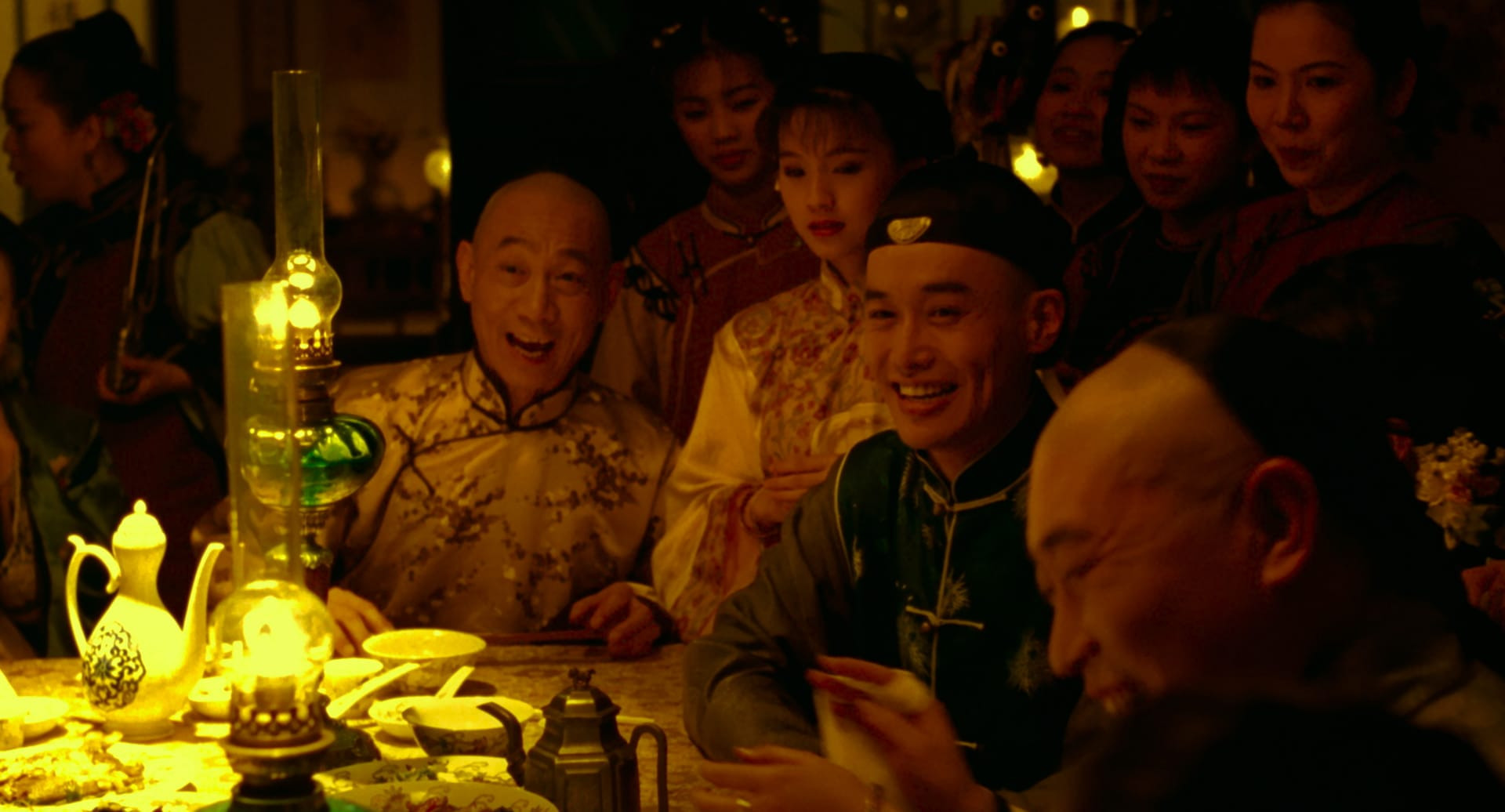RELATED ARTICLE
Hou Hsiao-hsien on the Films That Changed His Life
The Criterion Collection

The 1892 Chinese novel The Sing-Song Girls of Shanghai opens with a prologue in which the author, Han Ziyun, writes from his own perspective, providing a gateway into the book by describing a dream he has had. Referring to himself in the third person, he writes, “There is no telling how he arrives in this dream, only that he feels his body swaying and uncertain, and rolls into it like fog chased away by clouds. He looks up and finds himself elsewhere. He looks hither and thither and sees not a path, but a boundless and infinite sea of flowers.” The title chosen by Hou Hsiao-hsien for his 1998 adaptation of the novel, Flowers of Shanghai, encapsulates Han’s pleasurably disorienting dream vision: the Chinese characters for Shanghai mean literally “on the sea,” and “flowers” was a common euphemism for the courtesans whose lives are depicted in the story.
Flowers of Shanghai brought new attention to one of the most acclaimed works of nineteenth-century Chinese literature, a key example of the late-Qing-dynasty courtesan novels that capture the demimonde that thrived in the semicolonial port city. The film also speaks to the fact that The Sing-Song Girls of Shanghai’senduring reputation has depended less on general readers than on other authors and creators. The renowned writer Eileen Chang translated the novel into Mandarin Chinese from its original Wu dialect, and worked on an English translation until her death in 1995. (The English-language version published in 2005, for which Eva Hung revised and edited Chang’s translation, excludes the prologue; the translation above is by Jacob Wong.) Hou was introduced to the novel through Chang’s Mandarin translation. The film’s screenplay was adapted by Chu Tien-wen—Hou’s longtime screenwriter and collaborator, and a prominent voice in contemporary Chinese literature who names Chang as one of her influences.
Flowers of Shanghai exemplifies the literary sensibilities that have long informed Hou’s filmmaking, even as it signals a departure from his previous works, with their grounding in Taiwan’s culture and history. That early localized perspective is evident in the cycle of films (starting with 1983’s The Boys from Fengkuei) that both launched Hou’s career and brought international attention to the New Taiwan Cinema movement, of which he was a figurehead. It is further developed in the director’s renowned Taiwan Trilogy (A City of Sadness, 1989; The Puppetmaster, 1993; and Good Men, Good Women, 1995), which explores the island’s history from the beginning of Japanese colonial rule to the decades of martial law imposed by the ruling Kuomintang regime after its defeat in the Chinese Civil War. Following a detour for Hou into contemporary stories, some taking place in international settings, The Assassin (2015) travels even further back in time than Flowers, to the Tang dynasty, and also draws from a classic literary source.


